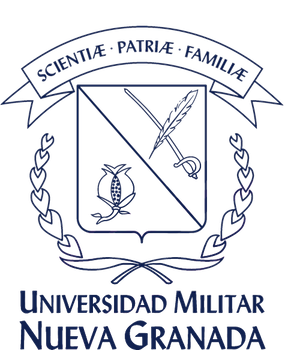Waltz y Keohane sobre el 11-S y la intervención en Irak
Resumen
Este artículo revisa las posturas de Kenneth Waltz y RobertKeohane sobre las consecuencias de los atentados terroristasdel 11-s en Nueva York y la intervención militar estadounidenseen Irak desde 2003. En la primera parte se estudia el análisisneorrealista de Waltz, y la fuerte crítica que hace a la respuestade la administración Bush. Posteriormente, se encuentra el análisisneoinstitucionalista que hace Keohane de los fenómenosestudiados, criticando la falta a la normatividad einstitucionalismo internacionales por parte de Washington. Finalmente,algunas conclusiones sobre estas interpretaciones.
Descargas
Lenguajes:
esAgencias de apoyo:
UMNGReferencias bibliográficas
Barbé, E. (2007) Relaciones internacionales, Madrid: Tecnos.
Buzan, B. (1993) «From International System to International Society: Structural Realism and Regime Theory Meet the English School», en International Organization, 47 (3) 327-352.
Claude, I. (1967) Tha Changing United Nations, New York: Random House.
Griffiths, M., Roach, S. y Solomon, S. (1999) Fifty Key Thinkers in International Relations, New York: Routledge.
Haas, P. M., Keohane, R. O. y Levy, M. A. (1993) Institutions for the earth : sources of effective international environmental protection, Cambridge, Mass.: MIT Press. Holsti, O. (2000) Public Opinion and Foreign Policy. En Lieber, R. (Ed.) Eagle Rules? New York: Longman.
Kennedy-Pipe, C. y Renger, N. (2006) «Apocalype Now? Continuities or Disjunctions in World Politics after 9/ 11.» en International Affairs, 82 (3).
Keohane, R. O. (1982) «The Demand for International Regimes», en International Organization, 36 (2) 325-355.
Keohane, R. O. (1986) Neorealism and it´s Critics, Columbia University Press.
Keohane, R. O. (1988) «International Institutions: Two Approaches», en International Studies Quarterly, 32 (4) 379-396.
Keohane, R. O. (1998) «International institutions: Can interdependence work?» en Foreign Policy, 110 (Spring) 82.
Keohane, R. O. (2002) «The Globalization of Informal Violence, Theories of World Politics, and the «Liberalism of Fear»», en Dialog-IO, 29-43.
Keohane, R. O. (2004) Theory and International Instituions. Conversations with History; Institute of International Studies, UC Berkeley. Disponible: http://globetrotter.berkeley.edu/people4/Keohane/keohane-con5.html, Acceso:2 de septiembre de 2008
Keohane, R. O. y Nye, J. (1977) Power and Interdependence: World Politics in Transition, Boston: Little, Brown.
Krasner, S. D. (1983) International regimes, Ithaca: Cornell University Press.
Lamy, S. (2001) Neo Realism and Neo Liberalism. En Baylis, J. y Smith, S. (Eds.) The globalization of world politics : an introduction to international relations. Oxford; New York: Oxford University Press.
Raas, W. A. y Long, A. (2007) «Osirak Redux? Assessing Israeli Capabilities to Destroy Iranian Nuclear Facilities », en International Security, 31 (4) 7-33.
Schmid, A. (1993) The Response Problem as a Definition Problem. En Schmid, A. y Crelinsten, R. (Eds.) Western Responses to Terrorism. London: Frank Cass.
Sodupe, K. (2003) La teoría de las relaciones internacionales a comienzos del siglo XXI, Zarautz: Universidad del País Vasco, Servicio Editorial.
Viotti, P. y Kauppi, M. (1987) International Relations Theory, New York: Mc Millan.
Waltz, K., Sagan, S. y Sigal, L. (1995) The Spread of Nuclear Weapons: A Debate, W. W. Norton & Company.
Waltz, K. N. (1979) Theory of International Politics, London: Reading, Mass.: Addison-Wesley.
Waltz, K. N. (1988) «The Origins of War in Neorealist Theory Like», en Journal of Interdisciplinary History, 18 (4) 615-628.
Waltz, K. N. (2000) «Structural Realism after the Cold War», en International Security, 25 (1) 5-41.
Waltz, K. N. (2002) The Continuity of International Politics. En K., B. y Dunne (Eds.) Worlds in Collision: Terror and the Future of Global Order. Houndmills, Basingstoke: Palgrave, Macmillan.
Waltz, K. N. (2003) Theory and International Politics. Conversations with History: Institute of International
Studies, UC Berkeley. Disponible: http://globetrotter.berkeley.edu/people3/Waltz/waltz-con6.html, Acceso: 26 de agosto de 2008
Weaver, O. (1996) The Rise and Fall of the Inter-Paradigm Debate. En Smith, S., K., B. y M., Z. (Eds.) International Theory: Positivism and Beyond. Cambridge: Cambridge University Press.
Young, O. R. (1997) Global governance : drawing insights from the environmental experience, Cambridge, Mass.: MIT Press.












